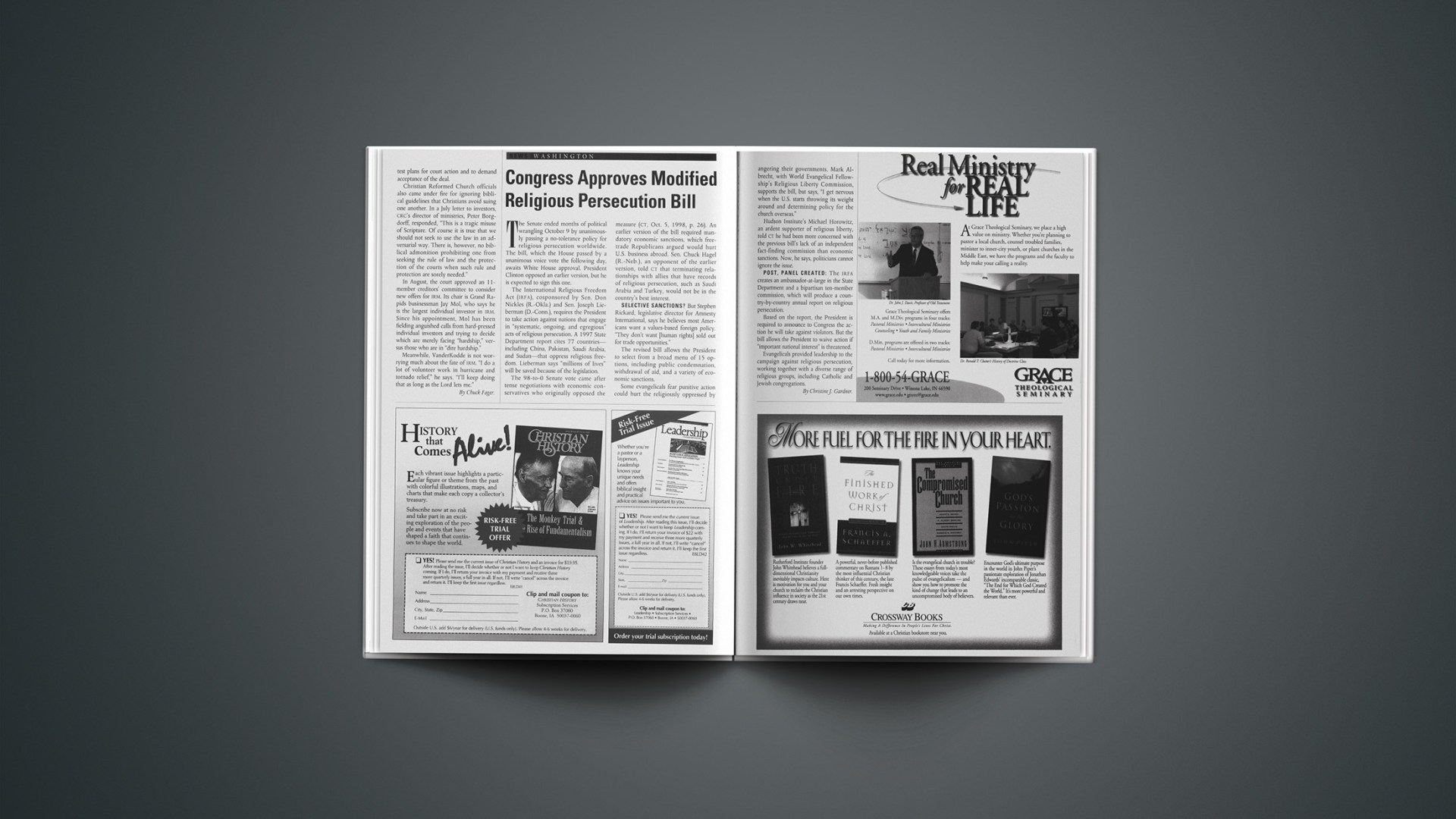The Senate ended months of political wrangling October 9 by unanimously passing a no-tolerance policy for religious persecution worldwide. The bill, which the House passed by a unanimous voice vote the following day, awaits White House approval. President Clinton opposed an earlier version, but he is expected to sign this one.
The International Religious Freedom Act (IRFA), cosponsored by Sen. Don Nickles (R.-Okla.) and Sen. Joseph Lieberman (D.-Conn.), requires the President to take action against nations that engage in “systematic, ongoing, and egregious” acts of religious persecution. A 1997 State Department report cites 77 countries—including China, Pakistan, Saudi Arabia, and Sudan—that oppress religious freedom. Lieberman says “millions of lives” will be saved because of the legislation.
The 98-to-0 Senate vote came after tense negotiations with economic conservatives who originally opposed the measure (CT, Oct. 5, 1998, p. 26). An earlier version of the bill required mandatory economic sanctions, which free-trade Republicans argued would hurt U.S. business abroad. Sen. Chuck Hagel (R.-Neb.), an opponent of the earlier version, told CT that terminating relationships with allies that have records of religious persecution, such as Saudi Arabia and Turkey, would not be in the country’s best interest.
SELECTIVE SANCTIONS? But Stephen Rickard, legislative director for Amnesty International, says he believes most Americans want a values-based foreign policy. “They don’t want [human rights] sold out for trade opportunities.”
The revised bill allows the President to select from a broad menu of 15 options, including public condemnation, withdrawal of aid, and a variety of economic sanctions.
Some evangelicals fear punitive action could hurt the religiously oppressed by angering their governments. Mark Albrecht, with World Evangelical Fellowship’s Religious Liberty Commission, supports the bill, but says, “I get nervous when the U.S. starts throwing its weight around and determining policy for the church overseas.”
Hudson Institute’s Michael Horowitz, an ardent supporter of religious liberty, told CT he had been more concerned with the previous bill’s lack of an independent fact-finding commission than economic sanctions. Now, he says, politicians cannot ignore the issue.
POST, PANEL CREATED: The IRFA creates an ambassador-at-large in the State Department and a bipartisan ten-member commission, which will produce a country-by-country annual report on religious persecution.
Based on the report, the President is required to announce to Congress the action he will take against violators. But the bill allows the President to waive action if “important national interest” is threatened.
Evangelicals provided leadership to the campaign against religious persecution, working together with a diverse range of religious groups, including Catholic and Jewish congregations.
Copyright © 1998 Christianity Today. Click for reprint information.










